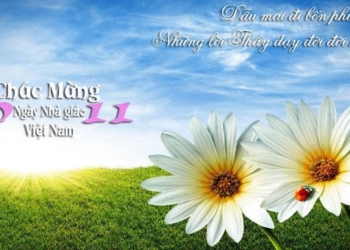Where did International Day of Happiness originate? What is the historical significance of this day? And why is March 20th each year chosen as International Day of Happiness? Let’s find out.
History and Significance of International Day of Happiness
International Day of Happiness on March 20 was officially announced by United Nations Secretary-General Ban Ki-moon at a UN conference on this issue in June 2012.
As of now, 193 member countries, including Vietnam, have committed to support, act, and make greater efforts to build a harmonious world, improve the quality of life, create a just society, promote sustainable development, and bring happiness to humanity.

The United Nations decided to celebrate this day at the proposal of the Kingdom of Bhutan.
The United Nations decided to commemorate this day at the proposal of Bhutan, a small country in South Asia, located deep within the eastern Himalayas. Starting from the 1970s, the king of this kingdom introduced a new way to evaluate societal prosperity, which is through the National Happiness Index, alongside the economic indicators commonly used to assess material wealth. This index is calculated based on factors such as health, spirituality, education, environment, quality of governance, and the living standards of the people.
At the launch meeting for World Happiness Day, UN Secretary-General Ban Ki-moon stated: “We need a new economic model that recognizes the importance of three essential factors for sustainable development. These factors are: Social – Economic – Environmental. If we can achieve all three, we will have a happy world.”
Bhutan – a country with a high happiness index has recognized the supremacy of national happiness over national income since the early 1970s and is famous for implementing the goal of Gross National Happiness instead of Gross Domestic Product.
The representative of Bhutan believes that the need for Happiness Day is for all nations and people around the world to step beyond differences and connect, uniting all humanity. The United Nations chose March 20 as International Day of Happiness because it is a special day of the year when the sun is positioned horizontally across the equator, resulting in equal lengths of day and night – symbolizing balance and harmony in the universe.
Significance of International Day of Happiness
Regarding the significance of International Day of Happiness on March 20, since this special day symbolizes the balance and harmony of the universe, the balance between yin and yang, between light and darkness, between dreams and reality, it conveys a meaningful message that balance and harmony are among the keys to lasting happiness for people.
Celebrating International Day of Happiness on March 20 expresses a shared desire, belief, and determination to strive for a peaceful world, free of war and poverty; a prosperous and sustainable world; a world where everyone, regardless of race, ethnicity, or religion, can fully enjoy happiness. This embodies the significance of Happiness Day on March 20.
“For each individual, happiness may have different meanings. However, we all agree that happiness means working to end conflicts, poverty, and other unfortunate conditions that many of our fellow beings are currently living under. Happiness is not a frivolous thing, nor is it something luxurious. Happiness is a deep desire of every member of the human family. Happiness should not be denied to anyone and must belong to all people. This aspiration is embedded in the commitment of the United Nations Charter to promote peace, justice, human rights, social progress, and improved living standards.”
In the latest World Happiness Report of 2023, Finland has been recognized as the happiest country in the world for the sixth consecutive year. Following Finland are Denmark, Iceland, Israel, the Netherlands, Sweden, Norway, Switzerland, Luxembourg, and New Zealand.
In 2024, the theme for International Day of Happiness on March 20 is “Happiness for Everyone”.
Vietnam’s Response to International Day of Happiness

Let’s love and share to find happiness for ourselves and help those around us.
Vietnam, a nation with thousands of years of history, is no stranger to the goal of happiness. Since the establishment of the Democratic Republic of Vietnam (now the Socialist Republic of Vietnam), “Independence – Freedom – Happiness” has become the national motto. “Independence is the premise of freedom, and happiness for the people. The freedom and happiness of the people are the measures of value and the goals of national independence. The happiness of the people is only complete when they are citizens of an independent nation, enjoying a materially sufficient life and a healthy spiritual life. The people must be the true master of the country and the development process. Everyone should have the conditions for comprehensive development, aiming for truth, goodness, and beauty. This has always been the goal and motivation for us to continue to innovate vigorously, determined to build and protect a prosperous Vietnam, a strong, just, democratic, and civilized nation.”
Organizing International Day of Happiness in Vietnam aims to join the world in expressing the desire, belief, and determination to strive for a peaceful world, free from war and poverty; a world of prosperous and sustainable development; a world where all people, regardless of race, ethnicity, or religion, can enjoy happiness. To make International Day of Happiness meaningful and noble, let us work together with responsibility, creativity, and determination to successfully implement the tasks of economic and social development, enhance efforts to eradicate poverty, especially focusing on ethnic minority areas with many difficulties, and vulnerable policy groups. Let us inherit and promote the beautiful traditional values of the Vietnamese nation. Let us love and share to find happiness for ourselves and help those around us, starting with our families, to create many moments of true happiness!
International Day of Happiness in 2024 falls on Wednesday, March 20, 2024.





















































